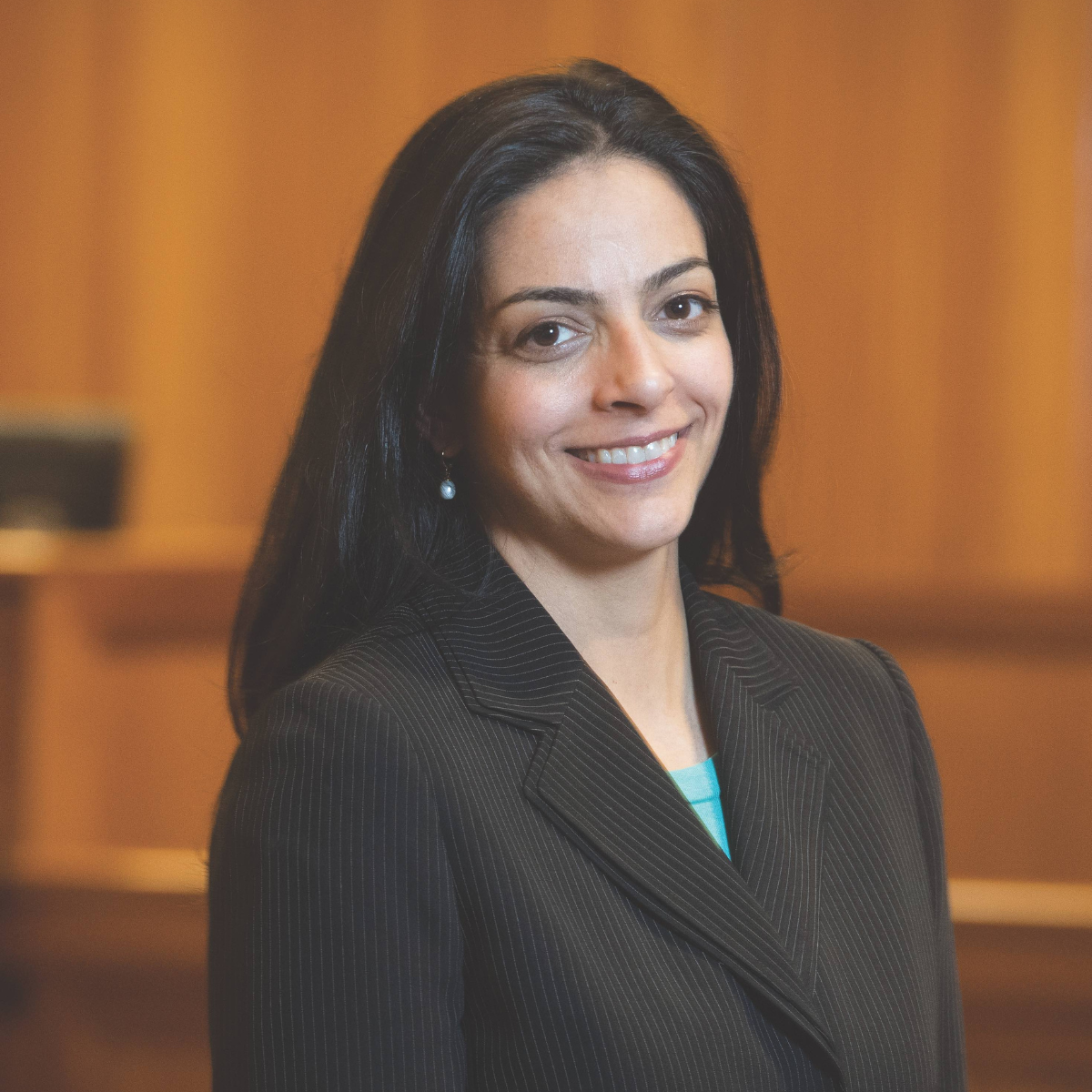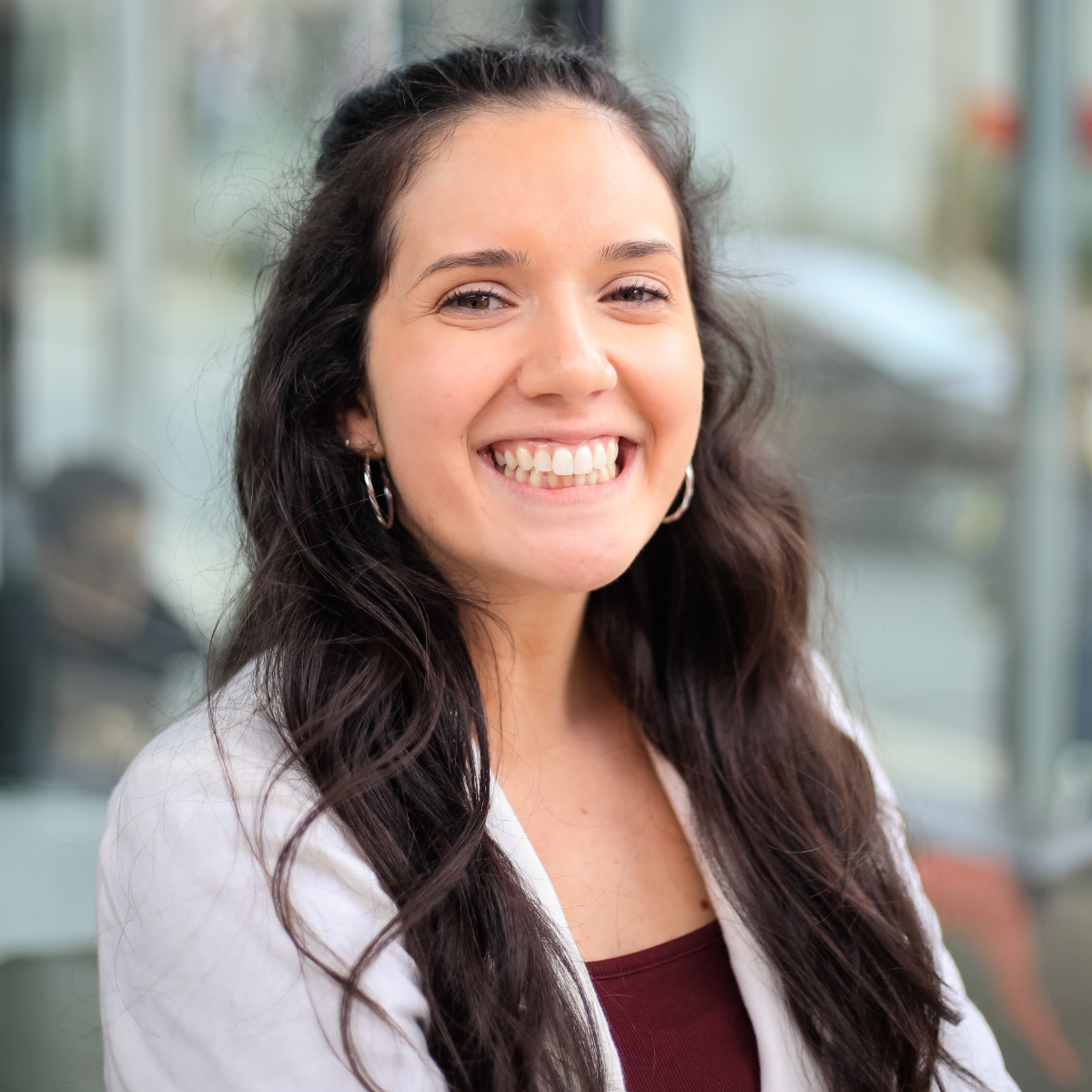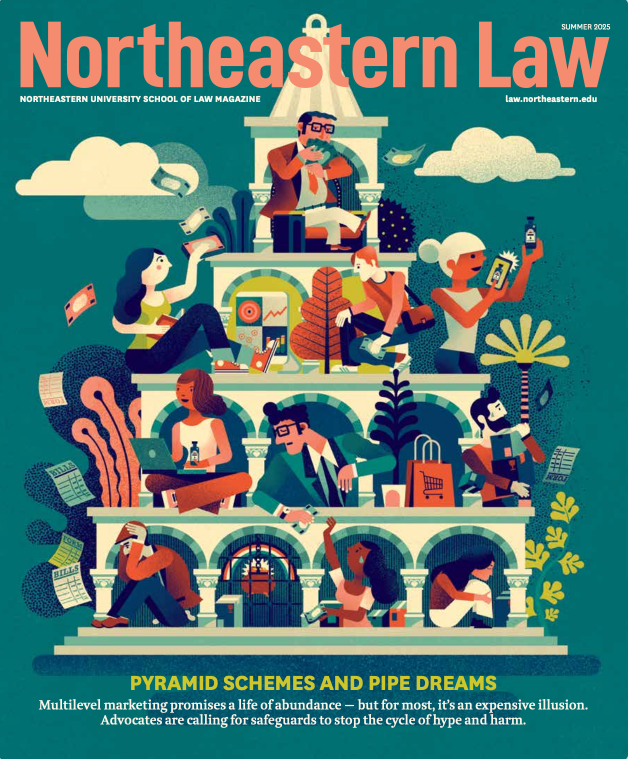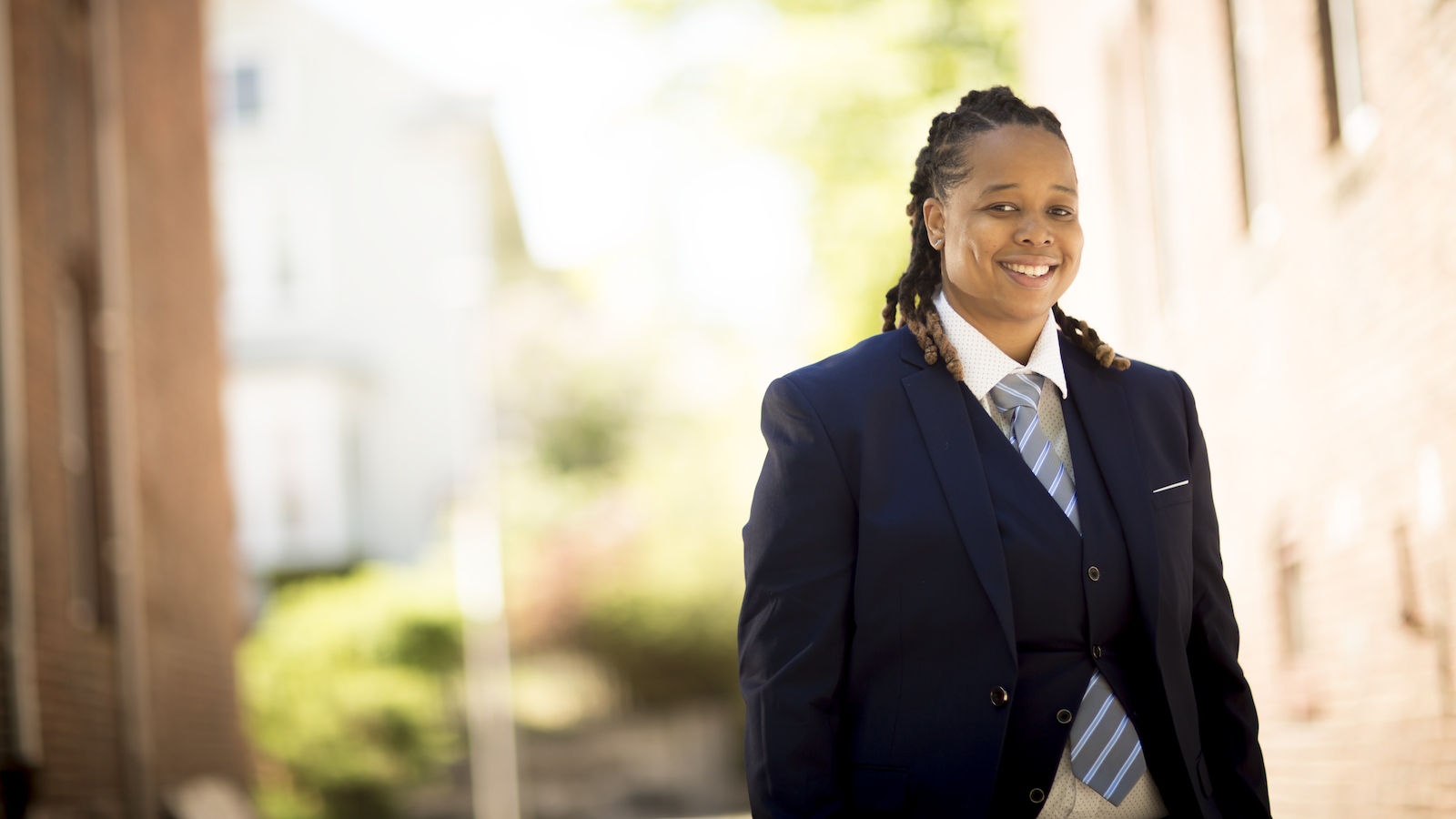In My Opinion
Human Rights, Legal Might
By Professor Martha Davis
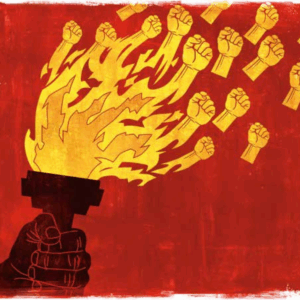
Illustration by Sam Ward
As lawyers, we rely on the rule of law to protect our clients from arbitrary deprivations, to ensure fair proceedings, to ward off government and private corruption. This is especially true in the United States because our government has for decades held itself apart from international human rights institutions, arguing that “American exceptionalism” — and the strength of our domestic constitutional norms — exempts us from human rights oversight. Unlike our peer democracies, the US has no National Human Rights Institution to monitor human rights implementation. Explicit human rights principles are not well integrated into US domestic law. Instead, they are viewed as weak, foreign constructs.
However, as UN Secretary-General António Guterres has noted, the rule of law and human rights are “two sides of the same principle, the freedom to live in dignity.” Despite efforts to wall the United States off from human rights scrutiny, the connection between these concepts is starkly exposed when the federal government disregards the rule of law in furthering its policies. Deporting US citizens and legal immigrants or delivering people to faraway prisons while denying them the opportunity to challenge their treatment are clear examples. The deportations and prison conditions may constitute human rights violations in and of themselves, but so do the processes that deny individuals any opportunity to be heard. Despite enormous government pressure to simply accept this law-free system of immigration enforcement, many lawyers and legal organizations have stepped forward to provide representation and vindicate their clients’ rights.
The US legal profession has also embraced human rights in more subtle ways. For example, American lawyers are unique worldwide in their emphasis on providing pro bono work on matters that champion important rights. This makes the Trump administration’s pressure campaign on lawyers, and the agreements to which some law firms have acceded, particularly insidious. Not only have these firms agreed to handle pro bono matters designated by President Trump worth many millions of dollars, but the Trump approved matters will create conflicts of interest that limit the firms’ ethical ability to challenge the government in other cases, insulating the administration from judicial scrutiny. Figuratively, the Trump team has found a way to “kill all the lawyers.” To their shame, some prominent law firms have bowed to pressure and accepted this Faustian bargain.
For the rest of us in the legal profession, there is no more important time to act on the oath we all took to uphold the Constitution. We have the capacity to speak out, counsel, litigate and educate the public about the importance of our nation’s constitutional norms. When the very rule of law is under threat, lawyers are human rights defenders.
About the Author
Professor Martha Davis serves as faculty co-director of the law school’s Center for Global Law and Justice.
Share
Professor Sharmila Murthy, an expert on examining legal and policy barriers to achieving environmental justice, improving access to water and addressing climate change, has been named faculty co-director of the law school’s Center for Public Interest Advocacy and Collaboration.
Kayla Fox ’25, a youth advocate and community builder committed to dismantling systemic injustice, has been named the recipient of the third annual Tyler Lawrence Memorial Peacemaker Award.



